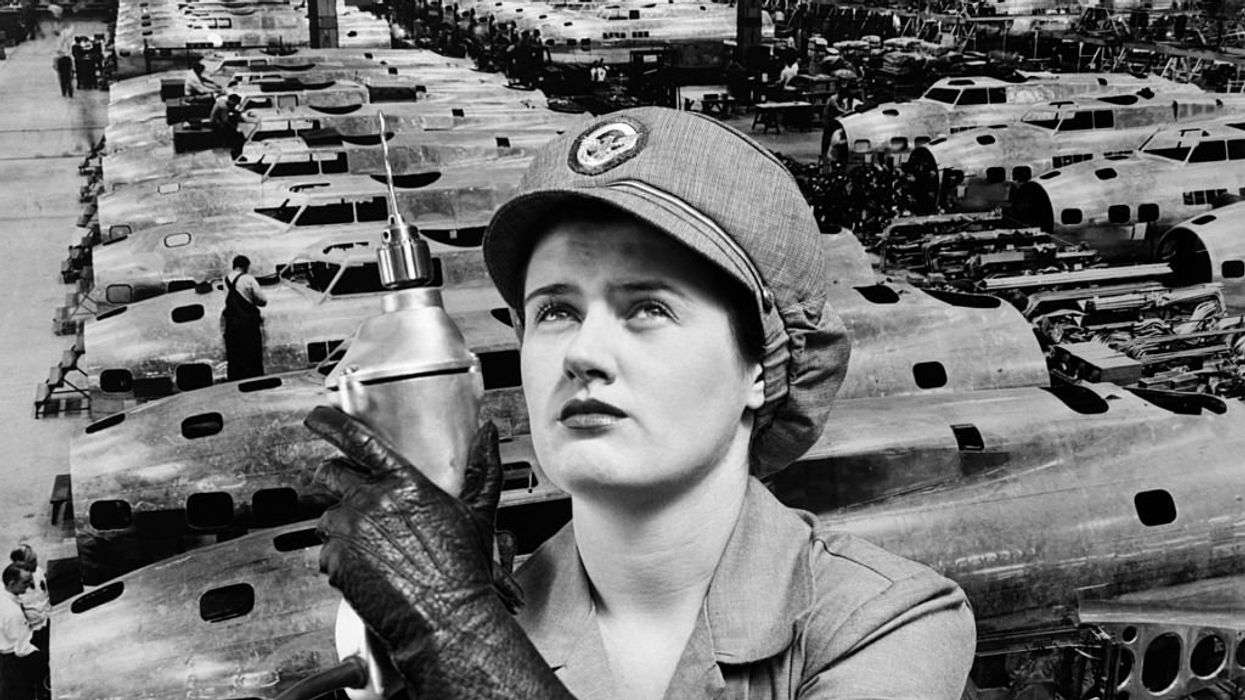
H. Armstrong Roberts/ClassicStock/Getty Images

The female strength that made this country great began with the admission that some jobs are better suited for men.
After former President Trump took a bullet to the ear in an assassination attempt at a campaign rally in Butler, Pennsylvania, on July 13, conservative pundits lambasted the apparent incompetence of multiple female officers on his security team and called for the female head of the Secret Service to be fired.
Right-wing pundit Matt Walsh contended that women should not be in the Secret Service at all. Dissident feminist writer Mary Harrington argued that while women might indeed theoretically belong in the Secret Service, there are nonetheless reasons why we might practically prefer men on its front lines.
When Alexis de Tocqueville first visited America in the 1830s, he contended that what set the United States apart was the uncommon courage, firmness, reason, strength, and energy of its women.
One of those reasons is purely physical: Trump is 6'3". To effectively protect him, one must be at least that tall. Very few women are. Plus, women are on average neither as fast nor as strong as men. So far, Harrington’s reality check should not be remotely controversial.
But Harrington also goes beyond the reality of physical difference to contend that women are not just physically different from men in ways that make us, on average, less effective as bodily protectors, but also psychologically different in ways that make us, on average, less capable of reacting optimally and bravely to the kinds of threats that attend frontline combat roles like those of a former president’s security detail at a campaign rally.
For many women and those who value equality between the sexes even without assuming indistinguishability between them, this is harder to swallow. And yet, it is undeniably true. So, the question of why it remains as true as it does bears asking.
On the one hand, the same evolution that has made most men taller and stronger than most women has also made most men more aggressive, less agreeable, and less anxious than most women — in short, braver in a crisis.
But, on the other hand, the popular American culture in which most women have been raised since the 1970s has so effectively de-emphasized the very virtue of bravery itself that we may in fact have exacerbated these differences between the sexes by producing an increasingly female elite that is afraid to acknowledge differences between men and women at all.
In other words, it’s not that we have elevated female dimwits to shape today’s most influential media and education so much as it is that we have elevated cowardly dimwits, some of whom now happen to be female.
We once had a culture in which facts like sexual dimorphism and the essential value to any society of traditionally masculine-coded bravery — with its willingness to engage violently when necessary — mattered to all thinking people. In this erstwhile culture, women were excluded from public life.
We now have a society in which politically inconvenient facts (i.e., men’s superior strength) and less than utopian realities (i.e., the enduring value of strength in a fundamentally harsh world) are ignored by those that shape our culture. In this evasive society that embraces feelings over facts, women are welcomed into public life.
What haven’t we yet tried? A society in which the embrace of facts and the embrace of female ambition coexist. Could such an America ever be, or are the mainstream embrace of truth and of female leadership mutually exclusive?
I very much hope — and think — that the problem is not that we have been elevating women, but that we have been elevating the wrong women.
In other words, we began elevating weak mindedness at the same time that we began elevating women. So, it now appears that Rosie the Riveter is too solipsistic and ideological to recognize that she began riveting precisely because she was not on the front lines in World War II and does not belong on them in any great numbers now.
But America’s Rosies were not always so childish.
When Alexis de Tocqueville first visited America in the 1830s, he contended that what set the United States apart was the uncommon courage, firmness, reason, strength and energy of its women.
Womanhood grounded in these “masculine” virtues is foundational to the American story. And for women, embodiment of these virtues involves acknowledging the evolutionary reality of our own limitations rather than infantilizing oneself and endangering others by denying obvious truths in deference to fairy tales.
The primary reality being denied in our mainstream culture today is that the unique physical and psychological strength that is the purview almost entirely of men remains indispensable to any functioning society.
Paradoxically, women who acknowledge this are more than fit to lead. In fact, the renewed cultural leadership of such women is presently essential.
Only strong women who accept reality in all its unsentimental cruelty (but cannot be so easily brushed aside with the accusations of “toxic masculinity” with which our mainstream elites tar strong men) can make American womanhood great for the modern era.
And just as in the early republic: As goes American womanhood, so goes America.
Elizabeth Grace Matthew